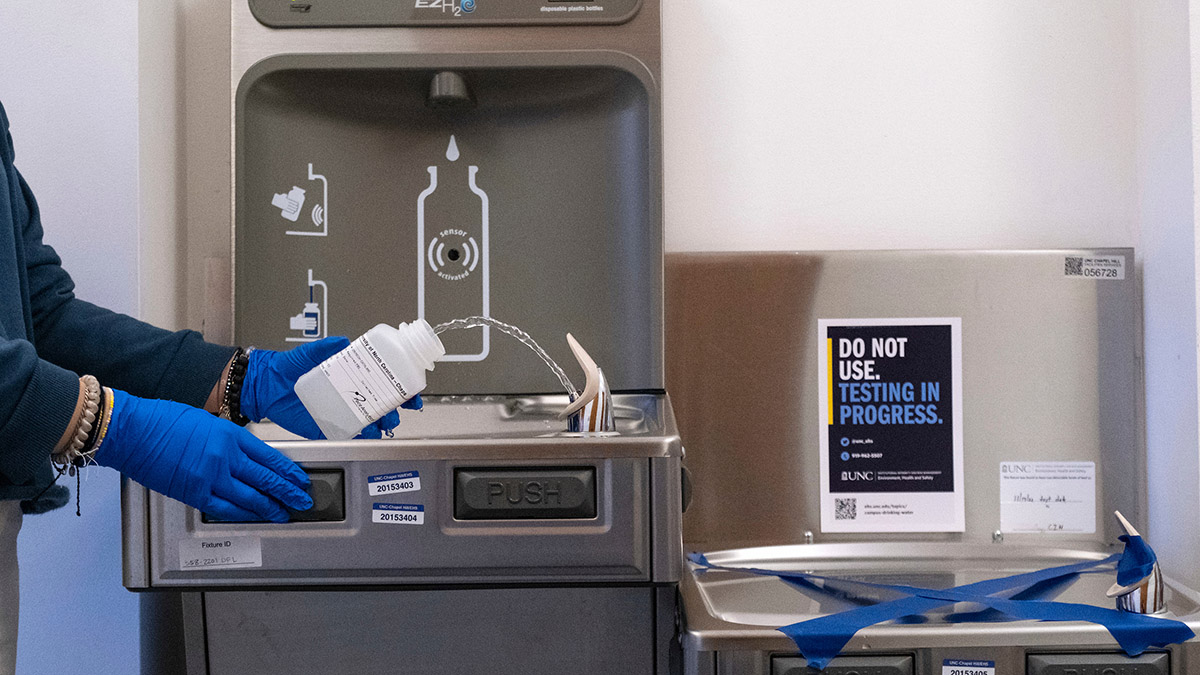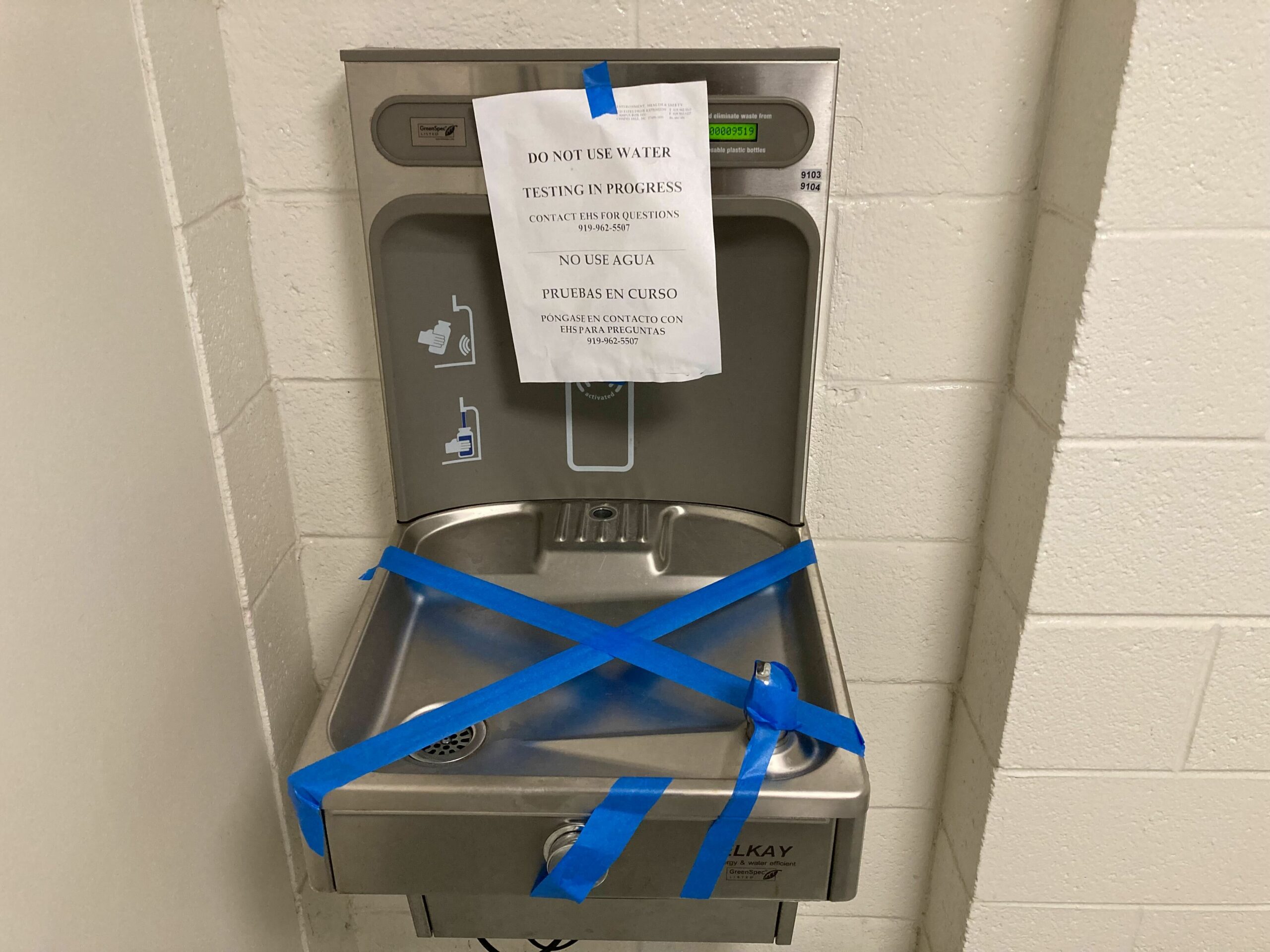Six different buildings on UNC’s campus recently had lead in specific water fountains, according to the university, as results of testing were shared following prior lead detection in Wilson Library.
UNC alerted the campus community through an email just before 3 p.m. on Wednesday, saying the Environment, Health and Safety department has removed the fixtures from service and are replacing the water source. Water fountains in Fordham Hall, Hamilton Hall, Manning Hall, Phillips Hall and South Building returned tests with traceable lead after testing in the last three weeks. Wilson Library, which saw three drinking fountains taken out of service in late August after testing, also returned traceable amounts of lead in 14 sinks and an additional water fountain.
The university said its Environment, Health and Safety department tested the fixtures in other buildings that have “similar components” or are “the similar age” to the fixtures in Wilson Library that initially returned detectable levels of the chemical element.
Fordham, Hamilton, Manning and Phillips Hall are all departmental or classroom buildings. South Building is the administrative building for the Chapel Hill campus. Hamilton Hall, which was constructed in 1972 and saw three water fountains shut down by UNC, was the only additional building with more than one water fixture returning tests with noticeable lead. The Daily Tar Heel reported occupants of Hamilton Hall were alerted on Monday about the levels of lead and plans to take the fixtures out of service.
UNC said on Wednesday it is continuing to prioritize and test fixtures across campus that share similarities with those temporarily discontinued. The Orange Water and Sewer Authority, which serves the Chapel Hill and Carrboro area, confirmed to Chapelboro it is assisting the university through consultation but not through testing or sampling the water. A spokesperson for OWASA said these results on UNC campus do not reflect the drinking water quality across the service area.
With the results of more lead in some of its buildings, UNC created a webpage on the Environment, Health and Safety department’s website to keep track of building and fixtures affected. The university said it will update the page as more test results return for buildings across its campus and if more alerts are issued to community members.
A statement shared by UNC Media Relations said the university is working on creating a system for anyone who wants to be tested for ingesting lead, but that it is “currently prioritizing adults who are pregnant or breastfeeding.”
Questions by campus community members can be directed to Environment, Health and Safety’s main line at 919-962-5507, according to UNC. Employees with health concerns are directed to contact the University Employee Occupational Health Clinic at 919-966-9119. Student, meanwhile, are encouraged to contact Campus Health at 919-966-2281 if they have health concerns.
Photo via Johnny Andrews/UNC-Chapel Hill.
Chapelboro.com does not charge subscription fees, and you can directly support our efforts in local journalism here. Want more of what you see on Chapelboro? Let us bring free local news and community information to you by signing up for our biweekly newsletter.










